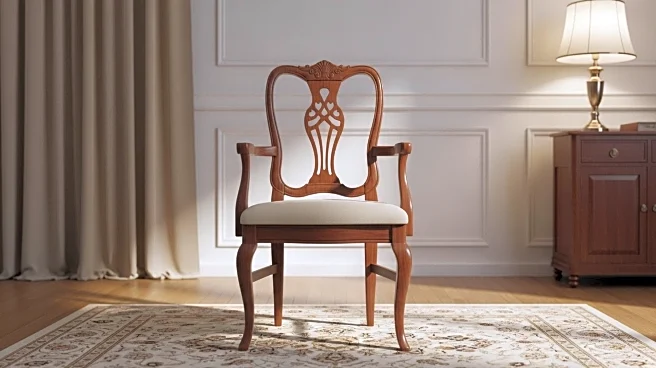What's Happening?
Former U.S. Federal Reserve Governor Larry Lindsey has decided to withdraw his name from consideration for the position of Federal Reserve Chair. Lindsey communicated his decision to CNBC's Eamon Javers, stating that he currently enjoys a fulfilling life and does not wish to re-enter public service. Lindsey was among the candidates being interviewed by Treasury Secretary Scott Bessent as President Trump considers replacements for current Fed Chair Jerome Powell, whose term expires in May. Lindsey's withdrawal narrows the list of potential candidates for this influential role in U.S. monetary policy.
Why It's Important?
The decision by Larry Lindsey to withdraw from consideration for the Fed Chair position is significant as it impacts the selection process for one of the most critical roles in U.S. economic policy. The Federal Reserve Chair influences interest rates, inflation, and overall economic stability, affecting businesses, consumers, and financial markets. Lindsey's withdrawal may shift focus to other candidates, potentially altering the direction of future monetary policy under President Trump's administration. The choice of Fed Chair can have long-term implications for economic growth and financial regulation.
What's Next?
With Lindsey's withdrawal, the selection process for the next Federal Reserve Chair continues, with President Trump and Treasury Secretary Scott Bessent evaluating other candidates. The decision will be closely watched by financial markets and policymakers, as the new chair will play a pivotal role in shaping U.S. monetary policy. Stakeholders, including businesses and investors, will be keenly interested in the potential policy shifts that may arise from the appointment of a new chair, especially in the context of current economic challenges.









